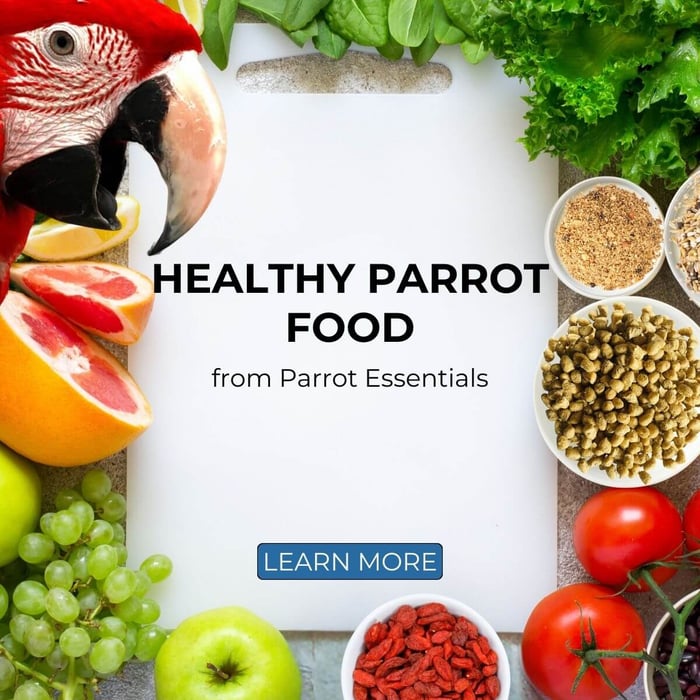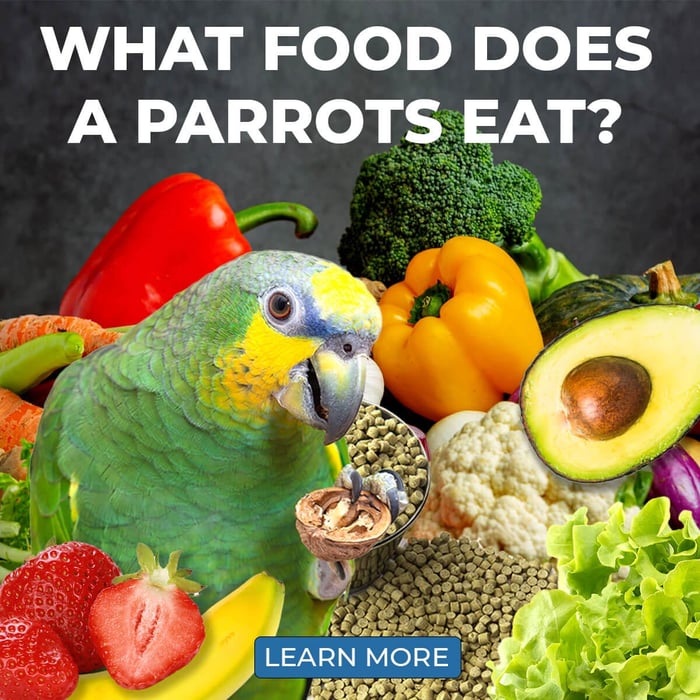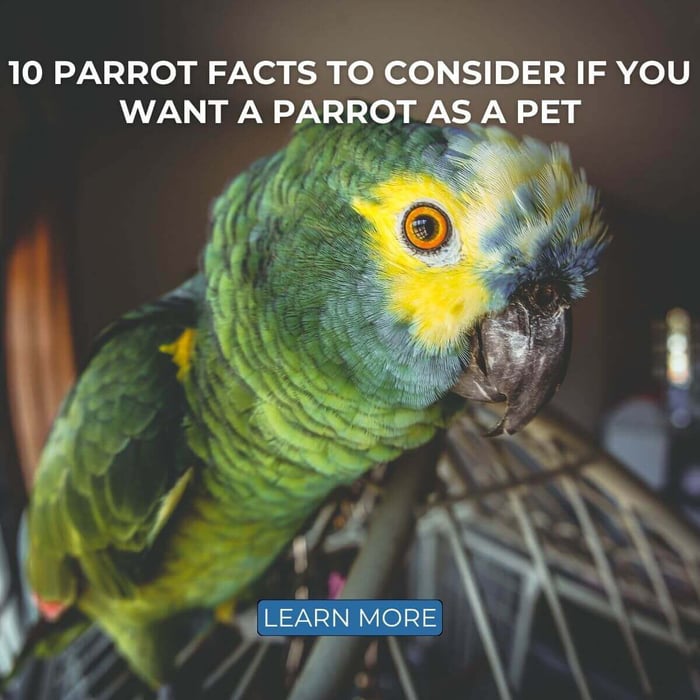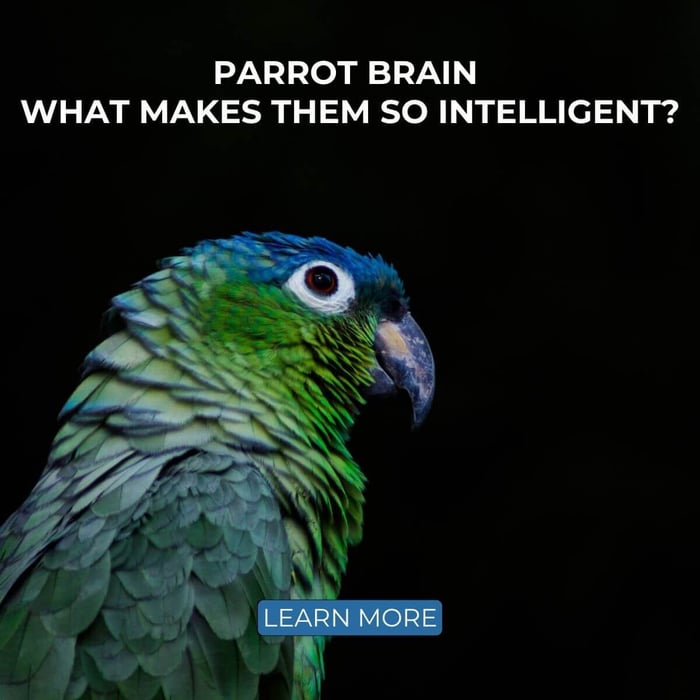3 Top Parrot Care Tips
Owning a parrot can be an incredibly rewarding experience, but it also comes with a significant amount of responsibility. Parrots are intelligent social birds that require a lot of attention, stimulation, and proper care to thrive. If you’re new to parrot ownership, it’s crucial to do your research to ensure you can provide the best possible environment for your feathered friend. Here are three essential parrot care tips for keeping your parrot happy and healthy.

Parrot Toys
Toys are an integral part of parrot care. They provide mental stimulation and physical exercise and help to keep their beaks healthy. There is a vast array of toys available on the market, but some of the best options are those made from natural materials such as hemp rope and natural wood. These materials are safe for parrots to chew on, which is an essential activity for their beak maintenance.
In addition to store-bought toys, you can use everyday objects to entertain your parrot. Items such as old cardboard tubes and boxes can be excellent for chewing and shredding, activities that are both enjoyable and beneficial for your bird. Parrots enjoy a variety of textures and shapes, so providing a range of objects can keep them engaged and curious.
You can also get creative and make your own parrot toys using safe, non-toxic materials. For those interested in crafting personalized toys, check out our Parrot Toy Making Parts section, where you can find a variety of components to design and build unique toys tailored to your parrot's preferences. This not only saves money but also allows you to create a more enriching and stimulating environment for your feathered friend.

Another great way to keep your parrot engaged is to place large pieces of fruit at the top of their cage. This encourages them to climb and reach for the fruit, providing both mental and physical exercise. Parrots are highly intelligent animals that can easily become bored, so rotating their toys and introducing new challenges is crucial for their well-being. Climbing to reach food not only stimulates their minds but also promotes healthy physical activity, which is vital for their overall health.
When selecting toys, ensure they are appropriate for the size and species of your parrot. Smaller parrots, such as budgies and lovebirds, will need different toys than larger species like macaws or African greys. Additionally, always supervise your parrot with new toys to ensure they are safe and to observe how your bird interacts with them.
Parrot Food
A balanced diet is fundamental to a parrot’s health. Feeding your parrot at least once a day with high-quality parrot pellets is a good base, but it's equally important to supplement these pellets with fresh vegetables and fruits. This variety ensures they receive all the necessary vitamins and nutrients. A diet that includes a mix of seeds, nuts, fruits, and vegetables closely mimics the natural foraging diet of parrots in the wild.
Peanuts, cooked fish, and cheese can be delightful treats for your parrot, but moderation is key. Always be cautious with the treats you offer, and avoid giving your parrot any chocolate or avocado, as these foods are toxic to birds. It's also a good practice to provide your parrot with bits and bobs of food throughout the day, which mimics their natural foraging behaviour and keeps their diet interesting. Providing foraging opportunities within their diet can help keep their minds active and engaged, reducing the likelihood of behavioural issues.

Hydration is another critical aspect of parrot care. Ensure your parrot always has access to fresh water. Clean their water dish regularly to prevent bacterial growth, and consider using a water bottle that attaches to the cage to keep the water supply clean. Additionally, some parrots enjoy bathing or being misted with water, which can be a fun and healthy way to keep their feathers in good condition.
It's important to note that different parrot species have different dietary needs. Research the specific nutritional requirements of your parrot's species to ensure you are providing the best possible diet. Consulting with an avian veterinarian can also provide valuable guidance on your parrot's dietary needs.
Bird Cage
Choosing the right birdcage is one of the most important decisions you will make for your parrot. The cage needs to be spacious enough to allow your parrot to move freely and comfortably. The larger the cage, the better, as parrots need plenty of space to flap their wings, climb, and play. A cramped cage can lead to stress and health problems, so it's worth investing in the biggest cage you can afford.
The bottom of the cage should be covered with a material that is easy to change and clean, such as wood shavings or shredded newspaper. This helps in maintaining hygiene and makes cleaning less of a chore. Regular cleaning of the cage is essential to prevent the buildup of bacteria and ensure a healthy environment for your parrot.

The placement of the cage is equally important. It should be in a well-ventilated area, away from drafts and direct sunlight. Avoid placing the cage in the kitchen, as cooking fumes can be harmful to your parrot. A quiet corner of a busy room can be an ideal spot, as it allows your parrot to feel part of the family without being overwhelmed by constant activity. It's important for your parrot to feel secure in their environment, so avoid placing the cage in high-traffic areas where they might be startled by sudden movements or loud noises.
In addition to the cage, providing a stand or play gym outside the cage can give your parrot a safe space to explore and exercise when supervised. This helps to prevent boredom and allows your parrot to stretch their wings and interact with their surroundings.
Additional Parrot Care Tips

Beyond the three main areas of toys, food, and housing, there are several other important aspects of parrot care to consider:
- Social Interaction: Parrots are social animals that thrive on interaction. Spend time talking to and playing with your parrot every day. This interaction helps to prevent boredom and can strengthen the bond between you and your bird. Parrots are highly social and can become lonely and depressed without sufficient interaction, so make sure to provide plenty of social stimulation.
- Health Care: Regular veterinary check-ups are essential to catch any potential health issues early. Parrots can mask symptoms of illness, so a vet's expertise is crucial in keeping your parrot healthy. Look for an avian veterinarian who specializes in parrot care, as they will have the specific knowledge needed to address any health concerns.
- Training and Enrichment: Teaching your parrot tricks and commands can be a great way to provide mental stimulation. Use positive reinforcement techniques to train your parrot, and always be patient and consistent. Training sessions can also strengthen the bond between you and your parrot, as well as provide a sense of accomplishment for your bird.
- Safety: Ensure your home is parrot-proofed. Remove any toxic plants, secure electrical cords, and be mindful of open windows and doors. Parrots are curious birds and can get into trouble if their environment is not safe. Always supervise your parrot when they are out of their cage to prevent accidents.
- Grooming: Regular grooming is important for your parrot’s health. This includes trimming their nails and beak, as well as providing opportunities for them to bathe. Some parrots enjoy misting or taking a bath in a shallow dish of water. Regular grooming helps to prevent overgrown nails and beaks, which can lead to health problems.
Conclusion
Caring for a parrot is a rewarding journey that requires dedication, knowledge, and a lot of love. By providing a stimulating environment with plenty of toys, a balanced diet, and a spacious, safe cage, you can ensure that your parrot leads a happy and healthy life. Remember, your parrot depends on you for their well-being, so it’s essential to stay informed and attentive to their needs.
Whether you’re a new parrot owner or looking to improve your parrot care routine, these tips can help you create a nurturing environment for your feathered friend. With the right approach, you and your parrot can enjoy a fulfilling, joyful companionship for many years to come. Parrots are incredibly intelligent and affectionate birds, and with proper parrot care, they can become a cherished member of your family. Investing time and effort into their care will be richly rewarded with the companionship and joy that these amazing birds bring into your life.




